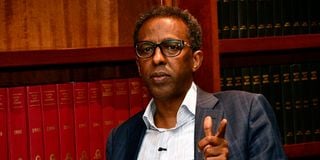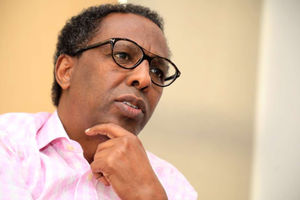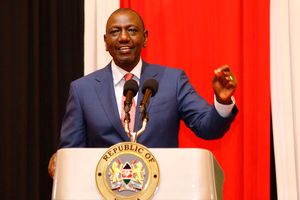
Senior Counsel Ahmednasir Abdullahi.
One need not belong to that pretentious fraternity of fellows who address each other as ‘Learned Friend’ (and by extension presume that everyone else is unlearned) to figure out that the Supreme Court gravely over-reached itself in banning controversial lawyer Ahmednasir Abdullahi from its precincts.
The court announced it would never grant him audience, and extended the sanction to all his legal associates or any other lawyers representing or holding brief for him.
The ‘ruling’ delivered by Supreme Court Registrar Letizia Wachira reminded the celebrated Senior Counsel that he ignored previous warmings about his tendency to perpetually attack the courts. It concluded that he, therefore, cannot continue to argue cases before the very same institution he does not believe can deliver justice.
The courts naturally take a dim view of the frequency and venom with which Mr Abdullahi employs social media to hurl all manner of unverified accusations against judges. Sometimes he comments on cases he is handling in a manner many professional colleagues reckon amount to intimidation and threats against the judges. Much of his conduct in the corridors of justice and on social media streets is highly objectionable, and might amount to contempt of court.
But there is also the bigger picture of freedom of expression. No person, office or institution — not the President, not the Cabinet, not the Chief Justice and the Judiciary, not the Speakers and Houses of Parliament, not the Archbishops, Kadhis and their religious institutions — is above criticism.
Those so thin-skinned that they cannot withstand scrutiny, whether fair or foul, do not deserve to occupy high office. Chief Justice and President of the Supreme Court Martha Koome and fellow ‘Supremes’ Philomena Mwilu, Mohammed Ibrahim, Smokin Wanjala, Njoki Ndungu, Isaac Lenaola and William Ouko must take stock of the decision and consider the harm it is doing to the image of the Judiciary.
They are telling the world that that they cannot be called to account, that they will not admit in their presence a lawyer who calls out their shortcomings. My unlearned mind tells me that Mr Abdullahi has been condemned unheard in gross violation of the very basic foundations of our justice system. The Supreme Court turned itself into complainant, prosecutor, judge, jury and executioner; not even bothering with the courtesy of summoning the accused to face a formal hearing.
Basic human rights
That is a cowardly and a great travesty of justice in a situation where procedures and mechanisms do exist for disciplining errant lawyers, even leading to disbarment. Mr Abdullahi, why styles himself ‘Grand Mullah’, may well be an arrogant bully in the court corridors. Many of his public attacks on the Judiciary, or on individual judges, may seem designed to subject undue pressure in cases where he is appearing.
He played a massive role, as a member of the Judicial Service Commission, in appointment of the first Supreme Court bench following enactment of the 2010 Constitution. That seems to have given him the idea that he owned the courts, and one began to see a scornful and condescending attitude towards judges in his courtroom appearances. However, his objectionably activity on X (formerly Twitter) — whether in lambasting the Judiciary or showing off his Bentley limousines, diamond-encrusted time pieces and designer outfits — cannot strip him of basic human rights, the right to a fair hearing.
The sanction originated and delivered from the Supreme Court makes it almost impossible for Mr Abdullahi to get a fair hearing anywhere. The complainant-executioner will not give him audience. The High Court or Court of Appeal might not want to entertain a challenge to a superior court verdict.
So Mr Abdullahi has turned to the East African Court of Justice, where he might not want to restrict himself to arguing for a fair trial, but to go further to try and prove that all his allegations of corruption and incompetence in the Kenya court system are actually grounded in some truth.
Justice Koome and her band of merry men and women could be held up to scrutiny at a forum they never anticipated, and where they have no control. They have played into Mr Abdullahi’s hands. It is instructive that the whole scenario developed when President William Ruto was laying into the Judiciary with unproven corruption allegations after the government lost a succession of court cases, probably out of incompetent legal representation on his own side.
Justice Koome responded to the outrageous threats on judicial independence by bowing down in craven surrender and offering dialogue with the President. She did not bar him from her courts!
[email protected]; @MachariaGaitho











